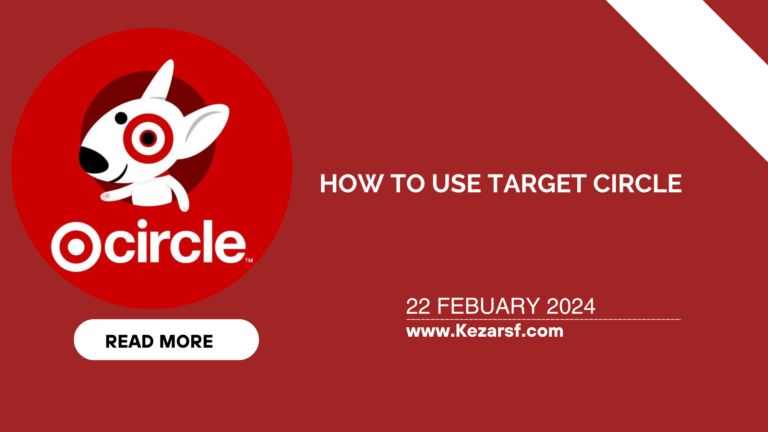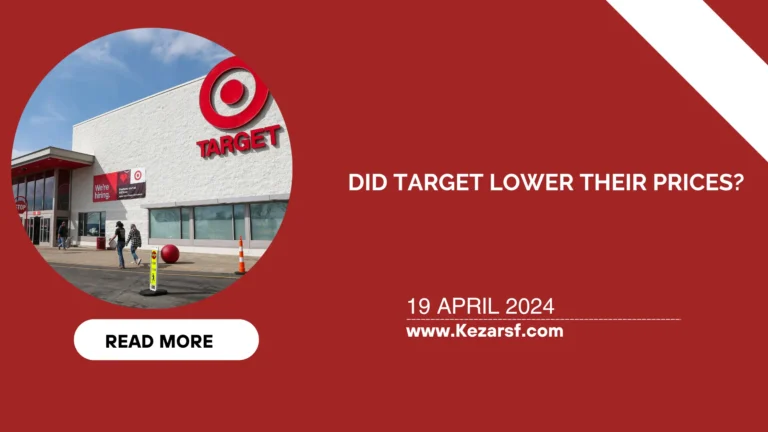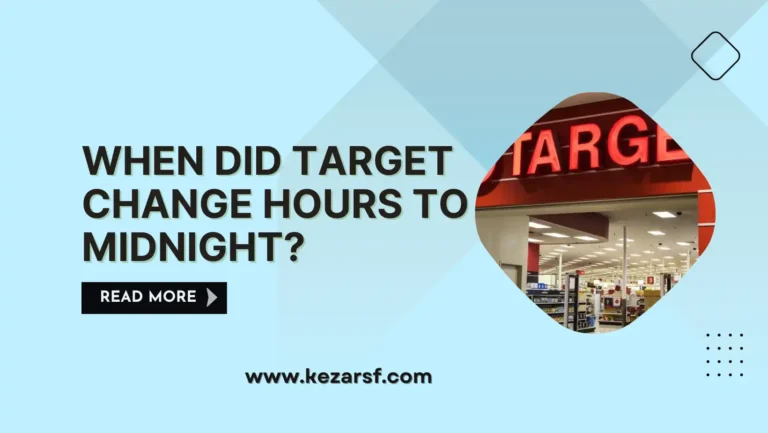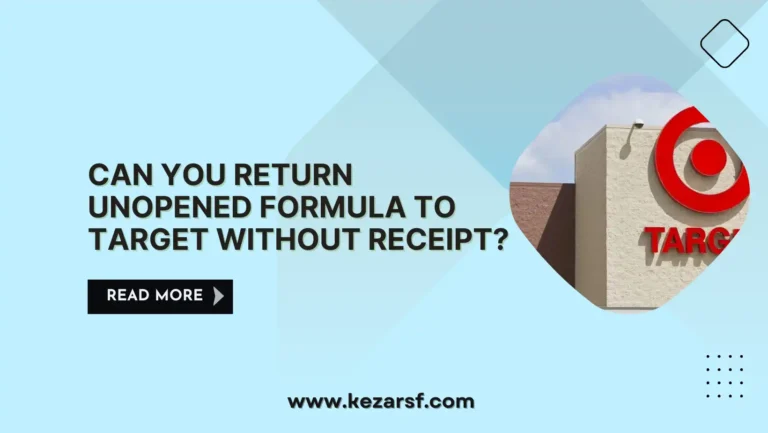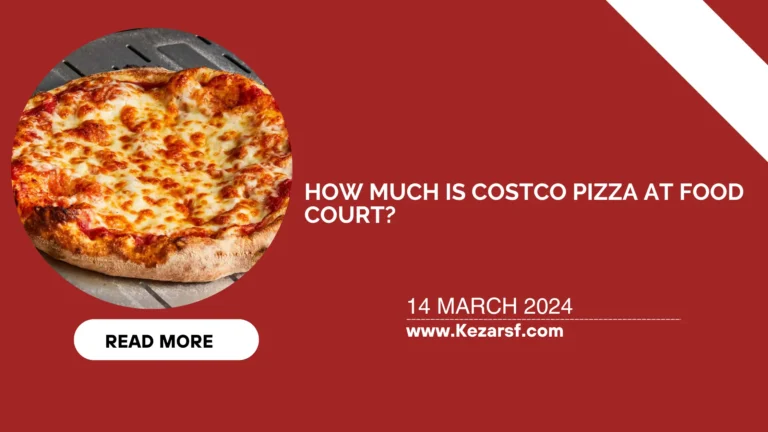Does Target Price Match?
Price matching has developed into a crucial resource for customers looking for the greatest offers in the always-changing retail environment. Does target price match? Target is one significant shop that provides this perk.
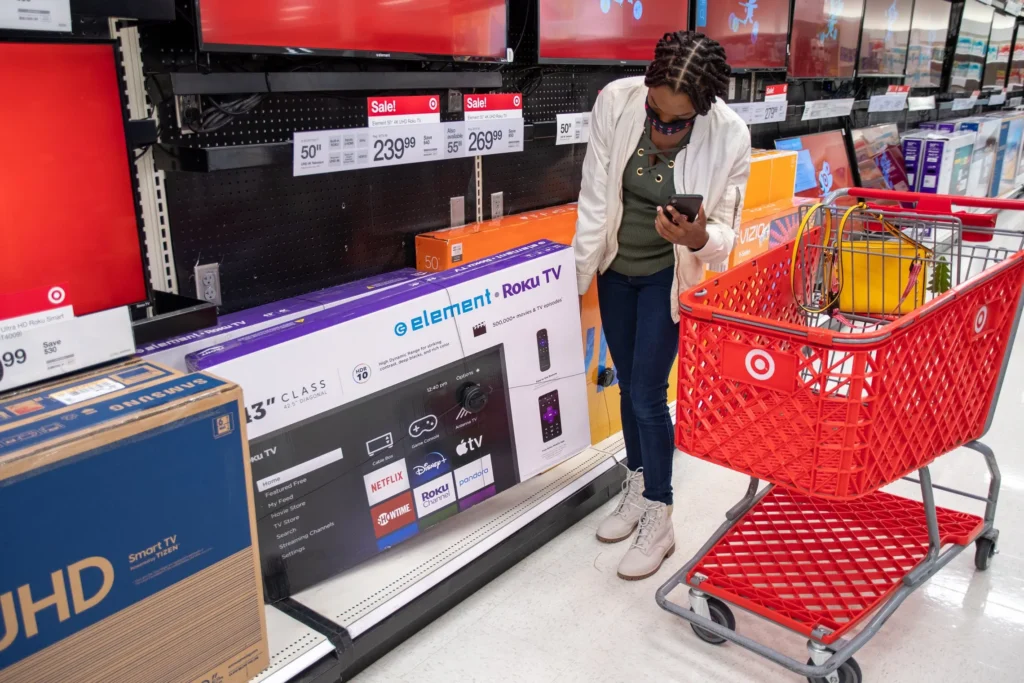
Customers who are aware of Target’s price match policy will be better equipped to choose their products wisely and maybe save money.
In this piece, we’ll examine the specifics of Target’s price-matching policy, including its key elements, prerequisites, and procedures for making a price-match request.
Does Target Price Match?
Target’s price match policy aims to guarantee that customers receive reasonable pricing when they buy at their establishments. Customers can ask for a price match if they discover a cheaper price for the same item at a few chosen rivals, both in-store and online.
Target has a list of qualified rivals with whose prices they are going to compare prices as part of their price-matching strategy.
The precise list may change over time, but it often includes well-known companies like Walmart, Best Buy, Amazon, and others. It’s vital to keep in mind that Target’s price match guarantee could not apply to some sorts of rivals, such as marketplace vendors or membership organizations.
Target Matching Process and Verification
Customers must provide evidence of the lower price in order to obtain a price match.
This can be done by offering a printout, a physical or digital advertisement, or by showing the rival’s website on a mobile device.
Target employees will confirm the cost and make sure it complies with the terms of the policy.
READ ALSO:
- Are Target Prices Lower Online?
- Did Target Lower Their Prices?
- Can You Return Cat and Jack Clothes?
- Can Target Hold Items for You?
- What Time Does Target Open?
Target Product Eligibility and Restrictions
Target’s price match promise applies to an extensive selection of products, including electronic devices, home goods, clothes, and more.
However, some products, such as those that are on sale, closeouts, re-manufactured, or sold by third parties, could be prohibited.
Additionally, “Black Friday” or “Cyber Monday” specials and other limited-time offers, bargains, and discounts might not be eligible for price matching.
Internet Price Matching
Target now expands its price-matching policy to include authorized internet businesses. Both in-person and online customers can ask for a price match, providing flexibility and convenience.
It’s crucial to keep in mind that there can be certain rules and verification procedures for online price matching.
Target Price Modifications and Time Limits
Target’s price match policy permits price modifications both before and after the transaction. A client can ask for a price adjustment within a certain time limit if they discover a cheaper price for an item they previously bought at Target.
It is advised to review the most recent policy guidelines because the precise length of this term can change.
Steps to Follow When Requesting a Price Match at Target
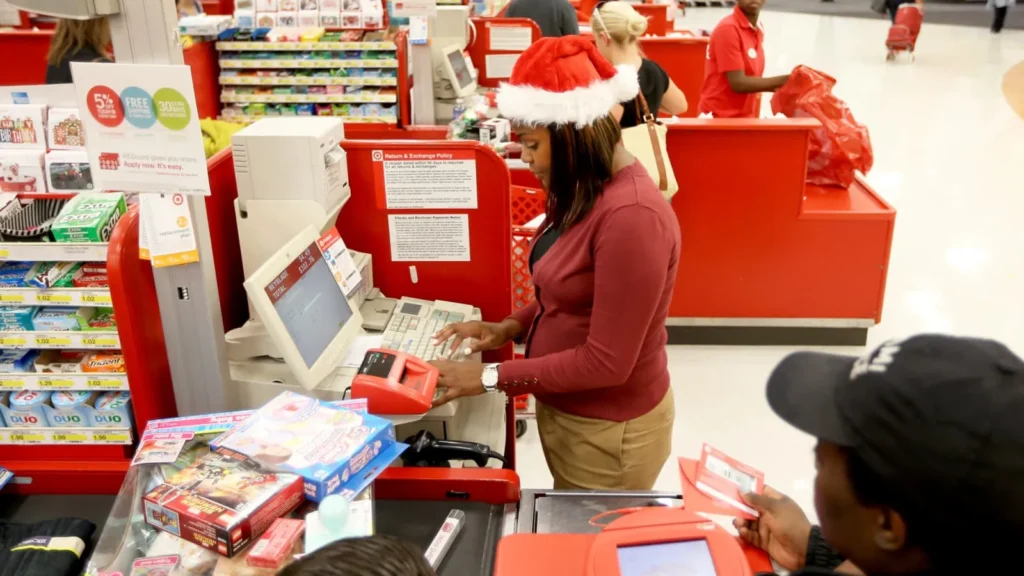
The general procedures that customers should take to start a price match at Target are as follows:
1. Find the qualifying rival and negotiate a cheaper price on the same product.
2. Obtain evidence of the decreased price, such as a printout, online display, or physical or digital advertisement.
3. For online purchases, go to a Target location or get in touch with customer support.
4. Show a Target employee the evidence of the cheaper price, or give the information required for online price matching.
5. The Target employee or customer support representative will check the cost and establish whether it qualifies.
The consumer will be given the new price at the time of sale or a refund for online purchases if the price match request is accepted.
Limitations on the Types of Items Eligible for Price Matching
The price-matching policy at Target is a useful resource for knowledgeable customers wanting to acquire the lowest prices. Although the policy offers affordable prices on a variety of goods, it’s crucial to be aware that there are certain restrictions and limitations.
We shall examine the constraints and restrictions Target has placed on the kinds of goods that are eligible for price matching in this section. Customers can use Target’s price match policy with confidence if they are aware of these limitations.
READ ALSO:
- How Do I Check My Balance on Target App?
- Can I Return and Repurchase at Target?
- What Age Group Shops at Target the Most?
- Can You Self Check Out Gift Cards at Target?
Clearance Items and Closeouts
The exclusion of clearance items and closeouts from Target’s price match policy is one of the main limitations.
Products that have been marked down drastically to make a place for new inventory are often referred to as clearance goods.
Target does not price-match clearance products because of their limited supply and already reduced pricing. Also excluded from the price match policy are closeout items, which are discontinued goods.
Product Refurbishment
The price-matching guarantee from Target does not apply to reconditioned goods. Products that have been previously owned but have been repaired to function properly are referred to be refurbished.
Target does not match prices on reconditioned goods, despite the fact that they frequently cost less. Customers will pay equivalent pricing for new items that are offered by qualified rivals thanks to this restriction.
Third-Party Sellers
Target normally does not match prices on products purchased from third parties.
These particular goods could not be subject to price matching when Target acts as a marketplace platform, allowing sales by third-party vendors.
This restriction concentrates on rivalry with large merchants rather than competition with specific suppliers in order to ensure pricing uniformity across the market.
Limited-Time deals and Special Discounts
Target’s price match policy often disallows limited-time deals, special discounts, and promotions. This is another significant restriction to take into account. Time-limited offers like “Black Friday” or “Cyber Monday” promotions might be among them.
As these promotions are frequently created to be unique to certain dates or events, Target does not price-match goods during certain promotional periods in an effort to guarantee fairness and consistency.
Geographical Restrictions
It’s vital to keep in mind that Target’s price-matching policy can have certain regional restrictions.
Competitors are only eligible for price matching if they have a physical location or an online presence within a particular geographic area.
These restrictions aid the target in keeping up its competitive edge and guarantee that buyers are comparing costs within a suitable market radius.
Comparing Target’s Price Match Policy with Competitors

It is useful to contrast Target’s price match policy with those given by other significant retailers in order to evaluate its efficacy.
The success of Target’s policy in the larger retail environment may be determined by analyzing how it compares to or differs from that of rivals like Walmart, Best Buy, or Amazon.
The variety of rivals who are eligible, the length of the price match guarantee, and any other bonuses or benefits offered by the insurance are all important variables to take into account.
Effectiveness of Target’s Price Match Policy
One of the biggest retailers, Target, has a price match policy in place to give customers affordable pricing and guarantee their pleasure.
The effectiveness of these regulations can change, though. Customers can use this perk with confidence if they are aware of the effects of Target’s price match policy.
Increasing Customer Happiness
Customer happiness is a crucial indicator of the success of any price match strategy.
The goal of Target’s price match policy is to satisfy consumers’ expectations by providing them with competitive prices and financial savings.
Increased customer satisfaction is a result of favorable consumer experiences as getting a price match and feeling treated fairly. Customers’ trust and loyalty can grow because of a successful price match, improving their whole purchasing experience.
Customer Experiences and Success Rates
It is critical to take into account customer experiences and success rates when assessing the efficacy of Target’s price match policy.
According to a number of anecdotal reports, buyers have successfully used Target’s price match policy to negotiate lower pricing on products they intended to buy. These incidents demonstrate how well the program fulfills its guarantee of affordable prices.
The availability of lower-priced goods at qualified rivals, adherence to policy rules, and verification procedures are only a few examples of the variables that may affect success rates.
Although many clients have reported favorable results, there may be times when price match requests are turned down because of certain policy limits or limitations.
Target Challenges and Limitations
Target’s price match strategy tries to offer affordable pricing; however, it also has several drawbacks and restrictions.
The need for clients to show documentation of a lower price is a typical problem because it might be time-consuming and only sometimes available.
Additionally, the policy disallows some products, including sale items, reconditioned goods, and limited-time promotions, which may restrict the range of available price-matching options.
The efficiency of price matching may also be impacted in cases when the qualifying competitor’s pricing is subject to extra fees or charges, such as shipping expenses or membership fees. Customers must take these restrictions into account and assess their savings in light of their unique situation.
Target Continuous Evaluation and Adaptation
The success of price match rules must be continuously assessed and modified as customer expectations and the retail environment change.
Target should proactively solicit client input, keep an eye on market changes, and evaluate the effects of its price match strategy on patron happiness and loyalty. The policy can continue to achieve its intended purposes if it is subjected to regular evaluations and changes.
Target’s price-matching strategy significantly contributes to its ability to provide reasonable pricing and raise customer happiness. Although consumer feedback and success rates show how beneficial the strategy is, it’s crucial to be aware of the difficulties and constraints it comes with.
Customer Experiences and Satisfaction with Target’s Price Match Policy
Target, a well-known retailer, has a price matching strategy to give consumers affordable rates and guarantee their pleasure.
Customer feedback and satisfaction are important determinants of how well any price match program is working.
Real-Life Customer Experience
It’s important to look at real-life customer experiences in order to determine whether Target’s price match policy is effective.
Many consumers have talked about their experiences with Target’s price match policy, emphasizing times when they were successful in getting reduced pricing on requested products.
These satisfying encounters raise client satisfaction and demonstrate how well the policy fulfills its guarantee of affordable prices.
Customers have described a variety of events, including showing printed or digital adverts, price matching on the Internet, and getting refunds for previously bought goods.
These personal experiences show how Target’s price match policy has assisted consumers in saving money and feeling appreciated as they shop.
Customer Satisfaction
A number of things can affect how satisfied customers are with Target’s price-matching policy. First and foremost, the simplicity and comfort of the price match procedure are essential.
Customers like a simple, quick procedure that enables them to produce evidence of a reduced price and have it validated without needless hassles.
Another element that boosts client happiness is transparency. Customers may make educated judgments and prevent misunderstandings when Target explains the requirements, limits, and limitations of the price match policy in unambiguous terms.
Trust is cultivated and a great client experience is ensured via clear communication.
Customer satisfaction is also impacted by the disposition and helpfulness of Target employees in conducting price matching.
Positivity and greater satisfaction are influenced by helpful, competent employees who are eager to help consumers understand the policy and address any problems.
Challenges and Limitations
Although many consumers have expressed satisfaction with Target’s price match policy, it is vital to recognize that there may be difficulties and restrictions.
Some consumers can have trouble locating evidence of a cheaper price or might run into situations where their price match applications are turned down because of particular policy limitations.
Monitoring and Responding to Customer input
It is critical for Target to actively monitor and respond to customer input on the price match policy in order to continuously enhance customer experiences and satisfaction. Customers’ complaints, ideas, and experiences can be used to identify areas that could need adjusting or clarifying.
To receive input from customers, Target can engage in social media activity, online reviews, and customer surveys. The policy’s efficacy may be improved by using this information to pinpoint possible pain areas and make the required corrections to fulfill consumer expectations.
It is possible to determine how effective Target’s price match policy is overall by analyzing consumer feedback and satisfaction.
The policy’s success in offering competitive pricing and promoting client loyalty is highlighted by positive real-world accounts and high consumer satisfaction.
Positive experiences are influenced by elements like a simplified procedure, openness, and a supportive staff.
But it’s important to recognize the difficulties and constraints that clients can run into. The policy is kept effective and in line with changing consumer expectations thanks to Target’s dedication to tracking and responding to customer input.
Target can continue to uphold its reputation as a customer-centric retailer and continue to offer its cherished consumers a positive shopping experience by regularly assessing and improving the price match policy based on customer experiences.

